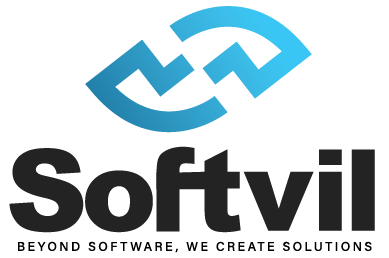Introduction
In the fast-paced world of startups, the journey from a mere idea to a successful product can be daunting. This is where Minimum Viable Products (MVPs) come into play. MVP development services have revolutionized how startups approach product development, allowing them to test their concepts with minimal investment and risk. This article will delve into the essential steps for launching an MVP successfully and strategies for scaling it into a full-fledged product.
Importance of a Successful MVP Launch
The MVP is a crucial stepping stone for any startup. It allows entrepreneurs to validate their business ideas quickly and cost-effectively. MVP development for startups is not just about building a prototype; it’s about creating a functional product with core features that solve a problem for early adopters. A successful MVP launch can attract early users, generate valuable feedback, and secure initial funding. Hence, getting the launch right is paramount for long-term success.
Preparing for Launch

Creating a Launch Plan
A well-thought-out launch plan is the foundation of any successful MVP launch. MVP development companies often emphasize the importance of detailed planning. This plan should outline the objectives, target audience, key features, and milestones. Here are some critical components:
- Define Objectives: Clearly outline what you aim to achieve with the MVP. Are you looking to validate a market need, test usability, or attract early adopters?
- Identify Target Audience: Knowing your audience helps in tailoring the MVP to meet their needs and preferences.
- Prioritize Features: Focus on essential features that solve the core problem. Avoid the temptation to add too many features initially.
- Set Milestones: Break down the launch process into manageable tasks with specific deadlines.
Marketing and Promotion Strategies
Even the best MVP won’t succeed without effective marketing. MVP development agencies often collaborate with marketing teams to ensure a seamless launch. Here are some strategies:
- Build a Landing Page: A simple, informative landing page can generate interest and collect emails for future marketing.
- Leverage Social Media: Use social media platforms to create buzz around your MVP. Share teasers, behind-the-scenes content, and launch updates.
- Influencer Partnerships: Collaborate with influencers who align with your product’s niche to reach a broader audience.
- Content Marketing: Publish blogs, articles, and press releases to inform potential users about your MVP and its benefits.
- Email Marketing: Use your email list to keep potential users informed and engaged leading up to the launch.
Monitoring Post-Launch Performance

Tracking Key Performance Indicators (KPIs)
Once the MVP is launched, it’s vital to monitor its performance closely. MVP software development should include tools to track KPIs that reflect the product’s success. Some important KPIs include:
- User Engagement: Track how users interact with your MVP. Metrics like session duration, pages per session, and bounce rate provide insights into user engagement.
- Conversion Rates: Measure the percentage of users who complete desired actions, such as signing up or making a purchase.
- Customer Feedback: Collect feedback through surveys, reviews, and direct communication to understand user satisfaction and identify areas for improvement.
- Churn Rate: Monitor the rate at which users stop using your product. A high churn rate indicates potential issues that need addressing.
Using Analytics to Gauge Success
Analytics tools are indispensable for MVP developers. They provide data-driven insights that can guide decision-making. Here’s how to use analytics effectively:
- Identify Trends: Look for patterns in user behavior to identify what works and what doesn’t.
- A/B Testing: Experiment with different versions of features or content to see which performs better.
- User Segmentation: Analyze different user segments to understand their specific needs and preferences.
- Heatmaps: Use heatmaps to visualize where users click and scroll, helping to optimize the user experience.
Scaling Your MVP

Identifying Growth Opportunities
Scaling an MVP involves recognizing and capitalizing on growth opportunities. This is where MVP development companies can provide invaluable expertise. Here are some strategies:
- Market Expansion: Explore new markets or demographics that could benefit from your product.
- Partnerships: Collaborate with other businesses to reach a broader audience and enhance your product offering.
- Additional Revenue Streams: Identify new ways to monetize your product, such as premium features, subscriptions, or partnerships.
Adding New Features and Enhancements
As your user base grows, their needs will evolve. MVP development services can help prioritize and implement new features. Here’s how to approach this:
- User Feedback: Use customer feedback to guide feature development. Focus on the most requested and impactful features.
- Iterative Development: Continuously improve and expand your product based on user feedback and performance data.
- Scalability: Ensure your infrastructure can handle increased traffic and usage. Plan for scalability from the start to avoid potential bottlenecks.
- Quality Assurance: Maintain a high standard of quality as you add new features. Regular testing and user feedback loops are crucial.
Conclusion
Summary of Launch and Scaling Strategies
Launching and scaling an MVP requires a strategic approach, combining meticulous planning, effective marketing, and continuous improvement. By focusing on core features, gathering user feedback, and leveraging analytics, startups can navigate the initial challenges and build a successful product. MVP development services and agencies play a crucial role in this process, providing the expertise needed to turn an idea into a market-ready product.
Final Thoughts on MVP Development
MVP development for startups is not just a phase but a continuous journey of learning and growth. It allows entrepreneurs to test assumptions, minimize risks, and build products that truly meet market needs. By partnering with experienced MVP developers and following best practices, startups can increase their chances of success and create products that make a lasting impact.
In today’s competitive landscape, the ability to launch, learn, and scale efficiently can be the difference between success and failure. Embracing the principles of MVP development and leveraging the expertise of MVP development companies can set the foundation for a thriving, scalable product.
FAQs
An MVP, or Minimum Viable Product, is the initial version of a software product that includes only the essential features to satisfy early users and provide feedback for future development.
An MVP allows startups to test their ideas with minimal investment, gather user feedback, validate market demand, and make informed decisions before committing to full-scale development.
MVP development services assist in planning, designing, and developing the core features of a product, ensuring it meets the target audience’s needs, and providing the foundation for future scaling and enhancements.
Key performance indicators (KPIs) such as user engagement, conversion rates, customer feedback, and churn rates should be tracked to assess the MVP’s performance and guide further development.
A startup should consider scaling its MVP once it has validated the core concept, received positive user feedback, and identified clear market demand, ensuring the product is ready for broader market expansion and feature enhancements.
About Softvil
Softvil is a leading software development agency renowned for its expertise in MVP product development. With a dedicated team of experienced developers, designers, and strategists, Softvil specializes in transforming innovative ideas into market-ready products. Their comprehensive MVP development services cater to startups and established businesses alike, ensuring a streamlined and efficient process from concept to launch. Softvil’s focus on delivering high-quality, user-centric MVPs helps clients validate their ideas, gather crucial user feedback, and scale their products successfully in the competitive market.

